
By 1942, the war appeared to be going well for Japan. Since its attack on Pearl Harbor on 7 December 1941, it had conquered a series of territories throughout Asia and the Pacific. In quick succession, it had seized Hong Kong and Malaya from the British, overrun large parts of the Dutch East Indies and had chased the Americans out of the Philippines. In doing so, it had plundered many of the resources it would need to continue the expansion of its empire. However, one major obstacle still needed to be overcome.
Admiral Isoroku Yamamoto, commander-in-chief of Japan’s Combined Fleet, had masterminded the surprise strike against Pearl Harbor but he was well aware that, despite its successes, it had failed to achieve its key objectives. “In the Pacific War, aircraft carriers were to replace battleships as the pre-eminent warship,” says historian and author James Holland. “Even before Pearl Harbor Yamamoto recognised this and, even though he thought the war was a mistake, he figured that if Japan was to have any chance of winning it’d need to knock out the US fleet, in particular its carriers.
“Once it had, it would have sufficient breathing space to grab the territories and resources it needed, leaving America little choice but to come to a peaceful compromise. At least, that had been the plan. But it was very much a case of job half done at Pearl Harbor, because the US carriers were absent. After the attack, with the Americans rearming at a rate the Japanese could never match, Yamamoto knew that a decisive hammer blow still needed to be dealt against the US and it needed to be dealt quickly. For Japan, it was a complete race against time.”
この記事は History of War の Issue 107, 2022 版に掲載されています。
7 日間の Magzter GOLD 無料トライアルを開始して、何千もの厳選されたプレミアム ストーリー、9,000 以上の雑誌や新聞にアクセスしてください。
すでに購読者です ? サインイン
この記事は History of War の Issue 107, 2022 版に掲載されています。
7 日間の Magzter GOLD 無料トライアルを開始して、何千もの厳選されたプレミアム ストーリー、9,000 以上の雑誌や新聞にアクセスしてください。
すでに購読者です? サインイン
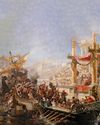
NAUMACHIA TRUTH BEHIND ROME'S GLADIATOR SEA BATTLES
In their quest for evermore novel and bloody entertainment, the Romans staged enormous naval fights on artificial lakes
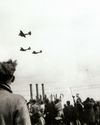
OPERATION MANNA
In late April 1945, millions of Dutch civilians were starving as Nazi retribution for the failed Operation Market Garden cut off supplies. eet as In response, Allied bombers launched a risky mission to air-drop food
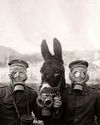
GASSING HITLER
Just a month before the end of WWI, the future Fuhrer was blinded by a British shell and invalided away from the frontline. Over a century later, has the artillery brigade that launched the fateful attack finally been identified?
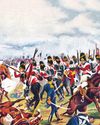
SALAMANCA
After years of largely defensive campaigning, Lieutenant General Arthur Wellesley went on the offensive against a French invasion of Andalusia

HUMBERT 'ROCKY'VERSACE
Early in the Vietnam War, a dedicated US Special Forces officer defied his merciless Viet Cong captors and inspired his fellow POWs to survive
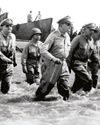
LEYTE 1944 SINKING THE RISING SUN
One of the more difficult island campaigns in WWII's Pacific Theatre saw a brutal months-long fight that exhausted Japan’s military strength
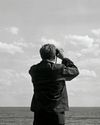
MAD DAWN
How technology transformed strategic thinking and military doctrine from the Cold War to the current day
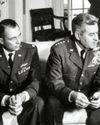
BRUSHES WITH ARMAGEDDON
Humanity came close to self-annihilation with the Cuban Missile Crisis, Broken Arrows’ and other nuclear near misses
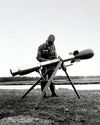
THE DEADLY RACE
How the road to peace led to an arms contest between the USA and USSR, with prototypes, proliferation and the world’s biggest bomb
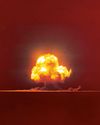
THE MANHATTAN PROJECT
Einstein, Oppenheimer and the race to beat Hitler to the bomb. How a science project in the desert helped win a war